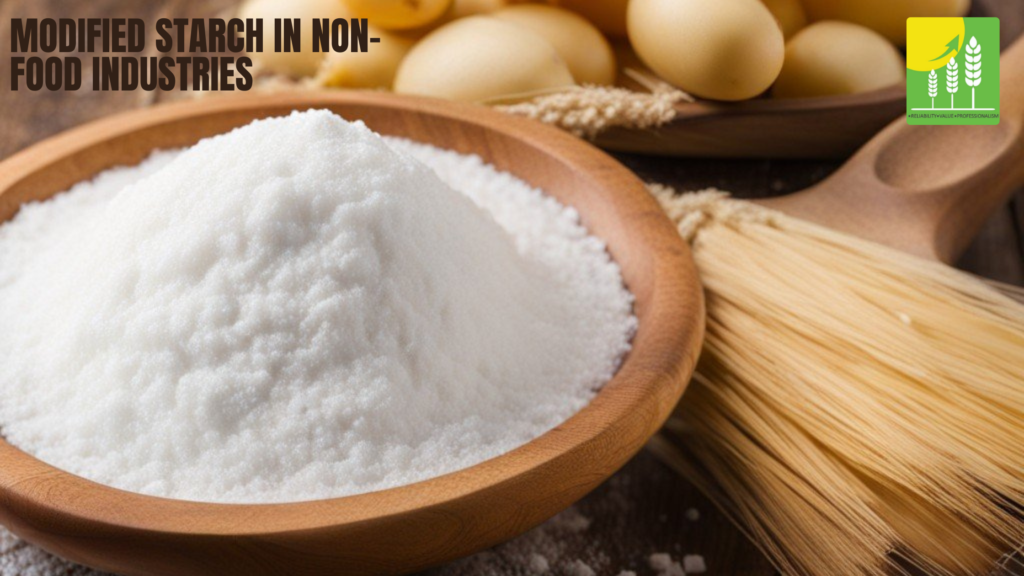Modified starch, a versatile and modified derivative of native starch, is celebrated for its multifaceted role beyond the realm of food. In this RVP Starch’s blog, we’ll explore the remarkable influence of modified starch in non-food industries, specifically focusing on its contributions to the paper, textile, and adhesive sectors.
Modified Starch: A Versatile Ingredient
Before we dive into its applications, let’s understand what makes modified starch special. Derived from natural sources, modified starch undergoes various physical, enzymatic, or chemical treatments to transform its properties, rendering it suitable for a wide array of applications.
The Paper Industry
Enhancing Paper Quality
In the paper industry, modified starch serves as a secret ingredient that significantly elevates paper quality. It acts as a binder, strengthening the paper’s fibers and increasing its resistance to tearing. Modified starch is also used as a surface-sizing agent, ensuring a smooth, consistent surface for writing and printing. This application has made modified starch indispensable in the production of high-quality paper products.
The Textile Industry
Sizing and Finishing Textiles
In textiles, modified starch plays a crucial role in the sizing and finishing processes. Textile sizing involves applying modified starch to yarn or fabric to improve its weave integrity and resistance to abrasion. This enhances the quality and appearance of the fabric, making it more durable and comfortable to wear. Modified starch is also used in textile finishing, where it imparts stiffness, smoothness, and a crisp finish to fabrics, enhancing their appeal.
Foundry Adhesive
Enhanced Molding Properties
Foundries utilize modified starch in adhesive formulations for molding applications. It enhances the molding properties of the adhesive, resulting in better adherence and consistency in casting processes.
The foundry industry, historically known for its environmental impact, benefits from the eco-friendly nature of modified starch. It reduces the emission of volatile organic compounds (VOCs) and promotes greener foundry practices.
Sustainability and Modified Starch
Sustainability has become a concern across industries. Modified starch aligns perfectly with these sustainability goals. Derived from renewable and natural sources, it is biodegradable and poses no harm to the environment. Furthermore, the efficient use of modified starch in these non-food applications helps minimize waste and reduces the environmental impact of manufacturing processes.
Conclusion
Modified starch’s remarkable versatility is evident in its non-food applications. In the paper industry, it enhances paper quality and durability. In textiles, it contributes to comfortable and high-quality fabrics. In the adhesive industry, it creates effective, eco-friendly adhesives. Its role extends far beyond the dining table, making it an invaluable ingredient in these non-food sectors. As industries continue to embrace sustainable practices, the adoption of modified starch in these non-food applications is set to grow, further contributing to environmental conservation and product quality.
The utilization of modified starch in non-food industries demonstrates its adaptability and enduring importance in a wide range of sectors, making it a fascinating ingredient to explore and appreciate.

